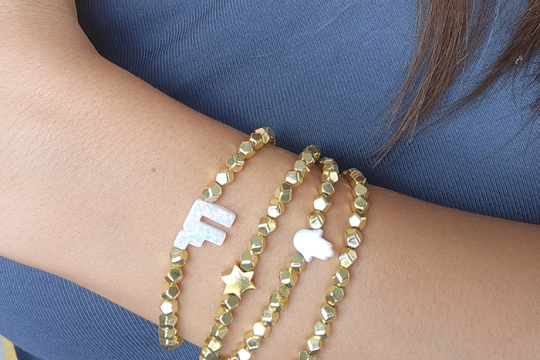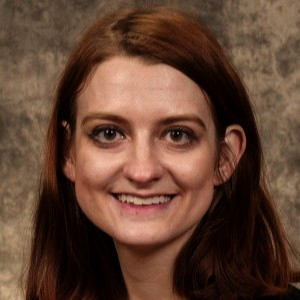
I still remember sitting excitedly in the ultrasound room on a Friday afternoon with my husband at my pregnancy confirmation appointment. Together, we watched the screen and saw the tiny white dot that, in nine months, would be a living, breathing person. The ultrasound tech left to get the doctor. When the doctor came in and looked at the screen, she began, "I have some concerns with what I'm seeing." My first thought was, Okay, well, I'm sure we can fix whatever it is. But what the doctor said next shattered my plans for the coming months: "I can't find a heartbeat." She went on to explain that I had experienced a missed miscarriage; the fetus had stopped growing about two weeks before the appointment. Because it had been two weeks, it was unlikely that I would miscarry on my own, so I was scheduled for surgery the following Monday.
What followed was what I refer to as my "week from Hell." It changed how I saw God, myself, and my future. Two days before that fateful appointment, my grandfather, who I had always been close with, passed away. After the confirmation appointment, I was not only dealing with my feelings about the miscarriage, but also helping with arrangements for Grandpa's funeral. Then, as we were getting ready to leave for the hospital on Monday morning, my husband got the call that my sister-in-law had just given birth to a healthy baby boy. While I was happy for her, I would be lying if I said that it didn't feel like a particularly vindictive slap in the face from God. I spent the next week recovering from the surgery and writing my grandfather's eulogy. The first time I left the house was to attend his funeral.
In the weeks and months that followed, I had my own wrestling match with God. While Jacob's wrestling match left him with a physical injury, mine left me emotionally and mentally raw. This was the first time I challenged God directly, saying "You're all-powerful, right? Then why do You not seem to want me to carry a pregnancy to term?" At one point, I even gave God an ultimatum: "If I don't get pregnant again in a month, I'm done with You."
Looking back, part of my anger with God was also anger at myself. Growing up, it was understood that I would eventually get a job, get married, get pregnant, and have children of my own. When I miscarried, I felt like I had failed at something fundamental.
One thing that helped ease my feelings of guilt and failure was reading Jewish texts related to miscarriage and abortion. Those teachings made me feel seen. Many of the texts I read emphasized the wellbeing of the pregnant person. I even found some Jewish rituals on Ritualwell for marking a miscarriage to help parents process their grief. Even though I didn't identify as Jewish at the time, it was relieving to find a theology that seemed to care about me.
Eventually, I did get pregnant again and had a son. While on maternity leave, I found out about my family's Jewish heritage and began the process of converting. When choosing my Hebrew name, I picked "Chana." It started with the same letter as my English name, and I liked that it meant "gracious." But most importantly, I identified with Chana's story in 1 Samuel 1:2 - 2:1, the haftarah reading for Rosh HaShanah. As I heard her story during the first Rosh Hashanah service I attended, I understood her deep sorrow and longing on a visceral level. I felt as though I knew how she felt as she prayed so fervently that she could be mistaken as being intoxicated. I also understood the relief and love she must have felt for her son Samuel, as I felt the same way toward my own child.
It's hard to believe I had my miscarriage almost six years ago. Sometimes, it seems as though it happened in another lifetime; other times it feels like it just happened yesterday. I love my son, but I still wonder what kind of child would have come from my first pregnancy. My miscarriage was traumatic, but it also profoundly impacted how I saw myself in relation to God. After my months-long wrestling match, I realized I needed to understand God as a being I could argue with. When I converted, one of the parts of Judaism that resonated most deeply with me was the notion that not only can we challenge God when something feels wrong, we're expected to. My miscarriage was a horrible experience, but it ended up shaping me and my journey more than I could have ever imagined.
Related Posts

No Holiday Dilemma this December

Wearing Strength: Jewelry as a Symbol of Jewish Resilience


